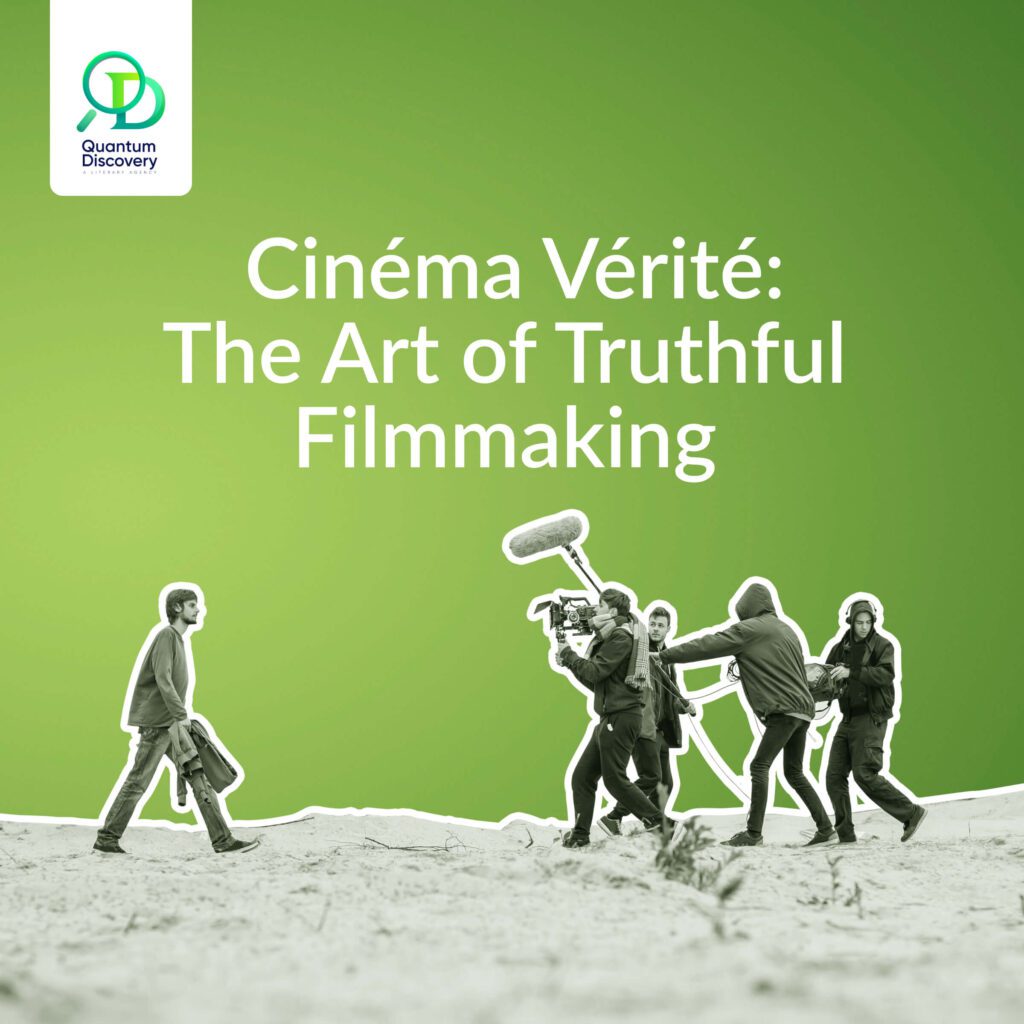1. Introduction: Exploring the Essence of Cinéma Vérité
In the realm of filmmaking, various styles and techniques have emerged over the years, each offering unique ways to capture and portray reality. Among these approaches is “Cinéma Vérité,” a French term that translates to “truthful cinema.” Cinéma Vérité is a documentary filmmaking style that aims to capture authentic moments and human experiences without interference or artificiality. This article delves into the world of Cinéma Vérité, exploring its origins, principles, notable films, and its impact on contemporary filmmaking.
2. Origins and Influences of Cinéma Vérité
Cinéma Vérité emerged in the late 1950s and early 1960s as a response to the traditional documentary filmmaking approaches that often employed scripted narration and staged setups. It was heavily influenced by the advent of lightweight, portable cameras and synchronous sound technology, which allowed filmmakers to capture real-life moments with ease. French filmmaker Jean Rouch and his film “Chronicle of a Summer” (1961) are often credited as the pioneers of Cinéma Vérité, as they paved the way for a new form of nonfiction storytelling.
3. Key Principles of Cinéma Vérité Filmmaking
Cinéma Vérité filmmaking adheres to certain principles that set it apart from other documentary styles. One of its fundamental tenets is the concept of “fly-on-the-wall” observation, where the filmmaker becomes an unobtrusive observer, allowing events to unfold naturally. The absence of formal interviews and scripted dialogues distinguishes Cinéma Vérité from other documentary forms, as it aims to capture authentic emotions, behaviors, and interactions.
4. Notable Cinéma Vérité Films and Filmmakers
Numerous films have contributed to the growth and recognition of Cinéma Vérité. D.A. Pennebaker’s “Don’t Look Back” (1967) followed musician Bob Dylan during his tour, showcasing the power of observational storytelling. Frederick Wiseman’s “Titicut Follies” (1967) offered an unflinching look into a Massachusetts mental institution, exposing societal issues. Additionally, the Maysles brothers’ “Grey Gardens” (1975) explored the lives of eccentric socialites, further exemplifying the intimate and unfiltered nature of Cinéma Vérité.
5. Impact and Legacy of Cinéma Vérité
Cinéma Vérité has had a profound impact on the world of filmmaking, influencing subsequent generations of documentary filmmakers. Its emphasis on authenticity and capturing raw moments has helped to redefine the boundaries of nonfiction storytelling. By challenging traditional notions of objectivity, Cinéma Vérité encourages audiences to question their own perceptions of reality and engage with the subject matter on a deeper level.
6. Cinéma Vérité Today: Contemporary Applications and Challenges
In today’s digital age, Cinéma Vérité continues to evolve and find new applications. With the accessibility of filmmaking equipment and platforms, aspiring filmmakers can embrace the principles of Cinéma Vérité to tell compelling stories. However, challenges arise as the line between reality and manipulation becomes blurred. Filmmakers must navigate ethical considerations, ensuring that their work remains true to the essence of Cinéma Vérité while maintaining the trust of their subjects and audiences.
7. The Future of Cinéma Vérité: Evolving Perspectives and Technologies
As technology progresses, the future of Cinéma Vérité holds exciting possibilities. Innovations such as virtual reality (VR) and interactive documentaries present new ways to immerse viewers in real-life experiences. These advancements provide opportunities for audiences to engage with Cinéma Vérité on a more interactive and personal level, further blurring the line between observer and participant.
8. Conclusion
Cinéma Vérité stands as a testament to the power of capturing truth and genuine human experiences on film. Through its observational approach, this filmmaking style has reshaped the documentary genre, challenging conventions and inspiring filmmakers to explore new storytelling techniques. As Cinéma Vérité continues to evolve, its legacy lives on, reminding us of the importance of authenticity and the profound impact that truthful storytelling can have on our understanding of the world.
FAQs
Q1: Is Cinéma Vérité limited to a specific genre of filmmaking?
No, Cinéma Vérité can be applied to various genres, including documentaries, narratives, and even experimental films. It is more of a stylistic approach to capturing reality than a genre itself.
Q2: Are there any drawbacks to using Cinéma Vérité techniques?
While Cinéma Vérité can provide a heightened sense of authenticity, it also presents challenges in terms of ethical considerations and maintaining a balance between observer and participant. Filmmakers must navigate these complexities to ensure the integrity of their work.
Q3: Can Cinéma Vérité be combined with other filmmaking styles?
Absolutely! Filmmakers often incorporate elements of Cinéma Vérité into their work alongside other styles. By blending different techniques, they can create a unique visual language that suits their storytelling goals.
Q4: How has Cinéma Vérité influenced fictional filmmaking?
Cinéma Vérité techniques have influenced fictional filmmaking by introducing a sense of realism and naturalism. Filmmakers often draw inspiration from Cinéma Vérité to create authentic performances and capture genuine moments within scripted narratives.
Q5: Can anyone become a Cinéma Vérité filmmaker?
Yes, anyone with a passion for truthful storytelling can embrace the principles of Cinéma Vérité. With accessible filmmaking equipment and online platforms, aspiring filmmakers have more opportunities than ever to explore this style and make their voices heard.
In conclusion, Cinéma Vérité has revolutionized the art of filmmaking by prioritizing authenticity and truthful storytelling. Through its observational approach, this style has challenged conventional documentary practices and inspired filmmakers to capture the essence of human experiences. As technology advances, Cinéma Vérité continues to evolve, presenting new opportunities and challenges for both filmmakers and audiences. Embracing the principles of Cinéma Vérité allows us to explore the world through a lens of truth, empathy, and understanding.
